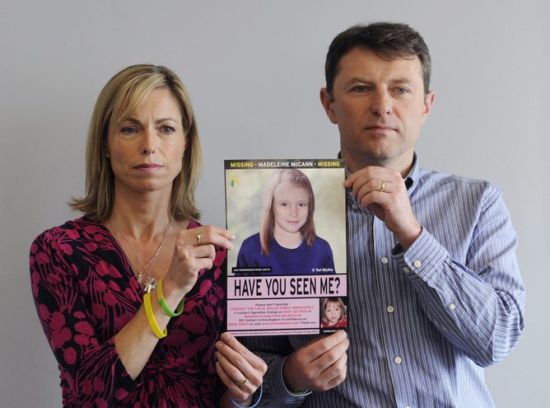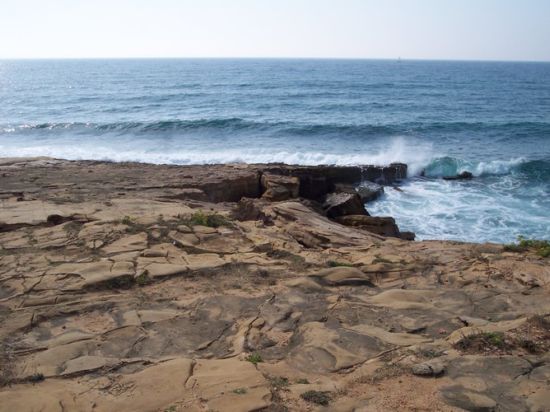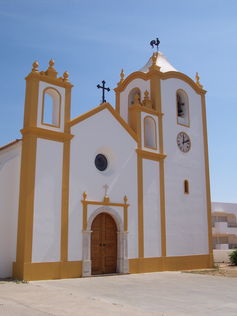|
 |
|
EPA/Facundo Arrizabalaga |
It is nearly seven years since a little
blonde-haired British girl named
Madeleine McCann disappeared from her
bedroom in a holiday resort in Portugal.
Madeleine, if she is alive, would be ten
years old now, having spent the majority
of her decade on earth separated from
her family, parents Gerry and Kate
McCann, and twin siblings Sean and
Amelia.
What happened that night in the Algarve
fishing village of Praia de Luz remains
a mystery. Was Madeleine abducted while
she slept, by a person or persons
unknown, as her parents claim? Or, as
the former head of the Portuguese
investigating team alleges, did she die
in apartment 5A of the Ocean Club
complex, her body disposed of in an
attempt to cover up negligence or worse?
Ongoing investigations by police teams
in the United Kingdom and Portugal have
failed to answer those questions, or to
find evidence sufficiently compelling as
to justify prosecutions in either
country.
The case continues to be a focus of
public, police and political attention
as the seventh anniversary of
Madeleine’s disappearance approaches,
and the trial of that same former
investigator accused of libel by the
McCanns comes to its conclusion in
Lisbon on Tuesday. Ex-inspector Goncalo
Amaral’s book, The Truth Of The Lie,
based on police work before the case was
‘archived’ due to lack of evidence,
advances the theory of Madeleine’s death
– accidental or intentional - and
hypothesises a staged abduction by the
parents.
For this he is being sued for over one
million euros in damages by the McCanns,
who allege that his book derailed the
search for their daughter when it was
published in 2009. The closing
statements and judge’s verdict on the
case are due this week in Lisbon.
My interest in this sad story is both
personal and professional. In the
northern summer of 2005 I took my
holidays at the Ocean Club, staying in
the apartment directly above 5A where
the McCanns resided in May 2007. A
friend of my parents owned the
apartment, and my extended family rented
it and two other units in the complex
for two weeks in July that year: my
parents in one, my sister and her family
in another, myself, my wife and my
brother in the apartment above 5a.
|
 |
|
The beach at Praia. Brian
McNair |
Two weeks is enough time to get to know
the Ocean Club resort, and the
surrounding village of Praia de Luz,
quite well. I ate in the Tapas
restaurant, drank in Kelly’s bar, went
inside the beautiful church at the
village centre; I walked on the beach,
and the streets leading to it from the
Ocean Club. So when the news of
Madeleine McCann’s disappearance broke
on May 4 2007 it resonated and captured
my attention like no other crime story I
can remember.
Millions of people all over the world
were similarly captivated, but my sense
of proximity to the events gave me a
specially good reason to follow the
case. The fact that Gerry McCann was
Glaswegian like me was another point of
connection.
From my professional perspective as a
media sociologist, the disappearance of
Madeleine McCann was an early example of
the dramatic impact of the rise of the
internet and 24-hour news channels on
how human tragedies of this kind are
reported and understood by the public.
The mediatisation of ‘Maddie’, as she
became known to many, was unprecedented.
It involved professional public
relations practitioners, including
former senior UK government specialists,
in highly organized media management, or
‘crisis communication’, as one of the
agencies involved characterised its
services.
It engaged the British public in
discussion like no previous case, not
because the crime was unique (though it
was rare – the most recent case of
suspected abduction by a stranger of a
British child while on holiday overseas
had been that of Ben Needham in 1991),
but because the emergence of social
media – Twitter launched in 2007,
Facebook in 2004 - provided a new and
powerful platform for public sharing of
information, opinion and argument about
an ongoing criminal investigation.
From early in the investigation the
McCanns proactively used the internet to
issue appeals and information about
Madeleine to a global online public, as
did the police. Scotland yard’s
Operation Grange, set up to investigate
the crime in 2011, had its own hashtag
and website.
The public used the internet to access,
assess and discuss information about the
case as it emerged, and to speculate on
what had happened to the little girl.
Their sources included a mass of
official material produced by the police
in both Portugal and the UK, digitized
and made available online.
|
 |
|
The church at Praia.
Brian McNair |
There were thousands of pages of
transcripts of interviews and court
testimony, detailed forensic
reports, summaries of findings by
investigating officers, court
rulings such as that by the
Portuguese Attorney General which
formally ‘archived’ the Madeleine
McCann investigation in 2009, all
neatly categorized and searchable on
sites such as
www.mccannpjfiles.co.uk .
Never before in the history of the
volatile relationship between crime,
media and public had so many people
had such easy access to so much
primary official data relating to an
unsolved, still active case.
By 2007 virtually all of the news
media were online, operating around
the clock with story updates, live
feeds and real time coverage of
events, commentary threads and links
to research materials. The unfolding
narrative of Madeleine McCann was
covered as it was happening, which
meant with glacial slowness,
punctuated by bursts of police
activity in the UK or Portugal.
Seven years on, that remains the
case.
There have been peaks and troughs in
the level of media and public
interest, corresponding to
newsworthy developments such as the
establishment of Operation Grange
and the BBC Crimewatch
‘reconstruction’ of October 2013.
The Lisbon libel trial of Goncalo
Amaral has been such a catalyst, and
its conclusion this week will drive
the disappearance of Madeleine
McCann back up the UK and Portuguese
media and public agendas.
The tone and content of the
coverage, and the public’s response
to it on social media, will be
determined in large part by the
Portuguese judge’s verdict. If
Amaral is found guilty, the McCanns
account of what happened to their
daughter will continue to set the
news agenda. If it goes the other
way, and Amaral is found not guilty
of defaming the McCanns in his book,
we can expect the world’s media to
report his hypothesis and the
supporting evidence more thoroughly
than has been the case up until now.
|




